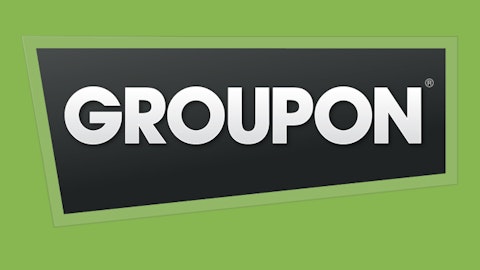Over the past half year, the pecking order in the global smartphone market has been brought to question in view of renewed momentum witnessed in Nokia Corporation (ADR) (NYSE:NOK) and Research In Motion Ltd (NASDAQ:BBRY). In most technological circles, the argument for a third ecosystem has been rife as analysts and pundits argue out alternate, yet strikingly similar, bull cases for Nokia Corporation (ADR) (NYSE:NOK) and Research In Motion Ltd (NASDAQ:BBRY).
Now however, hopes for these two players seems to be fizzling out as Apple Inc. (NASDAQ:AAPL) once again records gained momentum in its crucial U.S. home market. What’s more is that Apple’s progress is similarly tracking positively in the European market. Google Inc (NASDAQ:GOOG) , Apple Inc. (NASDAQ:AAPL)’s key competitor, is also performing considerably well in the sector. As of this writing, the ‘normal’ pecking order, so to speak, of Google and Apple being at the top of things has reestablished itself. This raises a question for investors; Should we stick to big names?
Apple gains in U.S, customer retention identified as key strength
I have on recurrent occasions (here) pointed out that Apple Inc. (NASDAQ:AAPL)’s brand strength is a crucial element in its arsenal. Apparently, I am not the only one who holds a similar opinion. In a research report relating to the June 21 to June 24 time frame, equity research firm Raymond James established that Apple’s customer retention rate within the U.S increased from 81.4% in March to 88.9% in June; significantly higher than Android’s 76.6% retention rate.
In light of Apple Inc. (NASDAQ:AAPL)’s unquestionable brand strength, the company has gained reasonable market share in the U.S. Raymond James’ survey pegs a 50% market share; further adding that 55% of respondents expressed their intention to buy an iPhone.
While surges in demand and market share are typical prior to new product launches (we witnessed that with Samsung just before the Galaxy S4), Apple’s surge is for the most part indicative of the clout that the Cupertino, Calif.-based tech titan has in the smartphone sector.
In the U.K, Apple Inc. (NASDAQ:AAPL) continues to secure anchorage in the hearts of consumers. While no recent compelling sales figures can back this (just yet), M&C Saatchi group contends that Apple, along with its iPhone, is the most desired brand in the U.K. The survey goes on to show that there is some reasonable daylight between Apple and Google Inc (NASDAQ:GOOG). The latter’s image in the U.K has been tainted by its current tax avoidance scandal.
Despite all the well-thought-out arguments for a third ecosystem, Apple Inc. (NASDAQ:AAPL) and Google still dominate. And more still, are increasing the gap between themselves and their competitors.
It’s high time we gave short sellers a break
While short interest in Nokia Corporation (ADR) (NYSE:NOK) and Research In Motion Ltd (NASDAQ:BBRY) remains high, the sole argument that the two companies are failing to recover because of short sellers is inaccurate. The chin-scratching reality is that both of these players, in spite of presenting superior products over the past six months, have failed to stir sales.
Research In Motion Ltd (NASDAQ:BBRY)’s disappointing earnings report saw the Canadian tech gem miss out on all key important metrics; BB10 unit shipments, gross margins and subscriber count. The fact that the turnaround player also turned a loss despite previously expected profits further compounded the negative investor sentiment.
Perhaps the biggest blow for Research In Motion Ltd (NASDAQ:BBRY) is that its subscriber base has been tapering off not only year-on-year, but worse still each quarter for the past year. This implies that the recent product launches have had little impact. In his defense, Research In Motion Ltd (NASDAQ:BBRY) CEO Thorsten Heins argues that the current fiscal year is largely a year for investment. He further adds that growth will start tracking upward in the next fiscal year, intimating that all he needs is a little more time.
In other industry news, Bloomberg reports that Nokia Corporation (ADR) (NYSE:NOK) has signed off to buying Siemens’ stake in their telecom-equipment venture. The deal, valued at around $2.6 billion, will see Nokia Corporation (ADR) (NYSE:NOK) use a bridge loan. Even with thinning margins, the Finnish handset maker has been compelled to sink its foot further into debt in order to survive.
Foolish conclusion
The argument for a third ecosystem may ultimately materialize, but not this year. Although Research In Motion Ltd (NASDAQ:BBRY) and Nokia Corporation (ADR) (NYSE:NOK) have shown that they can pack a punch, they will have to try harder in order to leave a mark.
Recent reports, sourced from company insiders, indicate that Google Inc (NASDAQ:GOOG) is working on an Android game console. It is believed that this move is a response to a similar initiative taken by Apple. If Apple and Google venture into the gaming sector, they will not only compete directly with Microsoft Corporation (NASDAQ:MSFT) and Sony Corporation (ADR) (NYSE:SNE), but they will also be able to leverage their strength in smartphones to bring revolutionary advancements in gaming. This could yet again be a huge growth pillar for the two tech titans.
Both Google Inc (NASDAQ:GOOG) and Apple are good buys. Apple Inc. (NASDAQ:AAPL), however, makes a more compelling case as of now. Its trading relatively low at just below $400 (as of this writing) and could see some reasonable upside going forward.
Lennox Yieke has no position in any stocks mentioned. The Motley Fool recommends Apple and Google. The Motley Fool owns shares of Apple Inc. (NASDAQ:AAPL) and Google Inc (NASDAQ:GOOG).
The article Smartphone Power Structure Back to ‘Normal’ originally appeared on Fool.com.
Lennox is a member of The Motley Fool Blog Network — entries represent the personal opinion of the blogger and are not formally edited.
Copyright © 1995 – 2013 The Motley Fool, LLC. All rights reserved. The Motley Fool has a disclosure policy.






